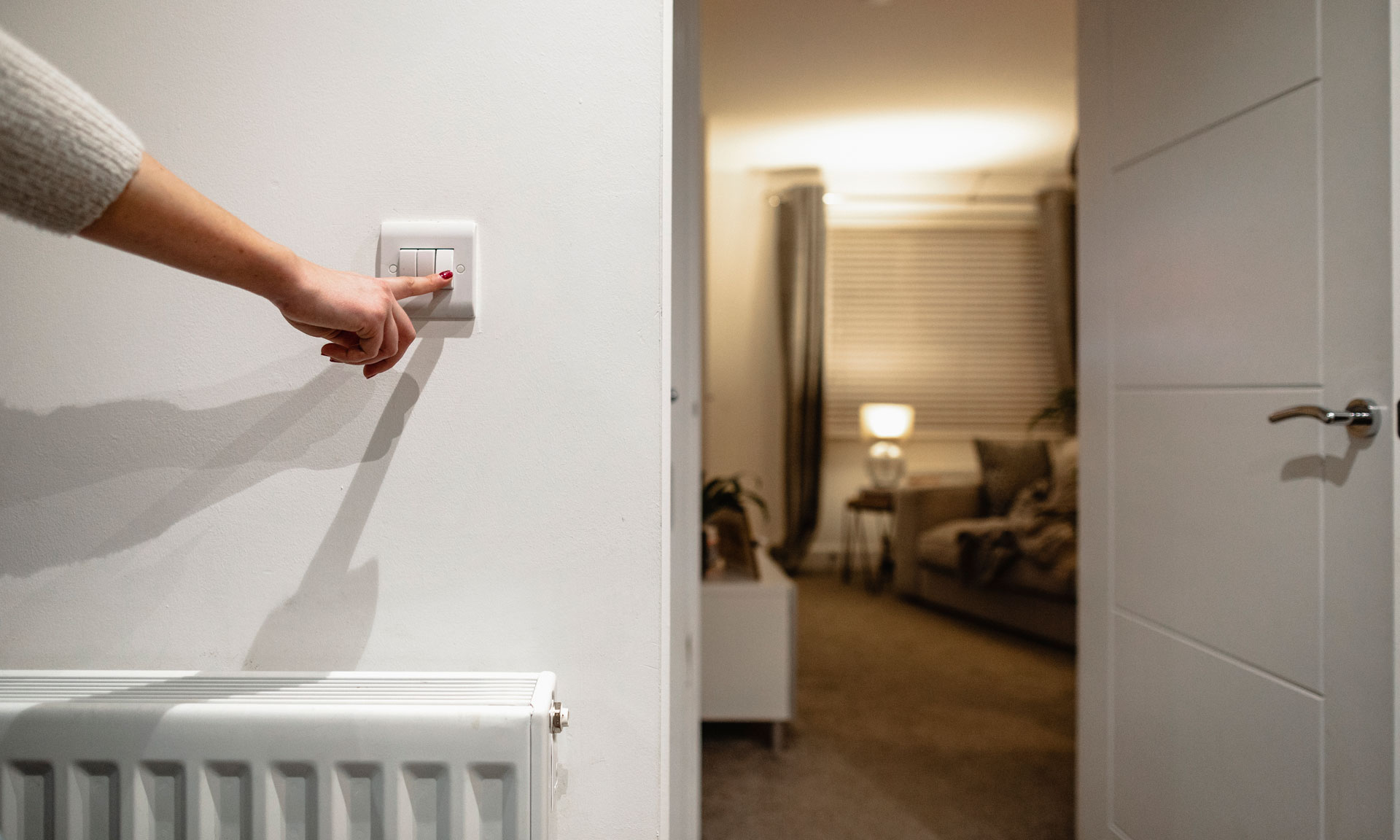Energy price cap rises to £3,549: how will it affect your bills?

*** UPDATE 9 September 2022: This story is out of date following the 8 September announcement of further government energy support.
Please head to: New energy guarantee at £2,500: calculate what this means for your bills for the most up to date information and our newly updated bill calculator. ***
With cost-effective fixed energy deals near impossible to come by, the majority of UK households are currently on variable tariffs, which are affected by the energy price cap. Those people will find their bills shooting up in the next month, as energy companies adjust their rates to take in today's changes.
A household with 'typical use' paying for a dual fuel variable tariff by direct debit will see annual bills increase by £1,578 – from the £1,971 set in April to the new cap of £3,549.
For people paying by prepayment meter, the cap is increasing by 79%, which means a 'typical' energy user would pay £3,608 per year, up from £2,017.
Ofgem expects that the equivalent per unit level of the price cap to the nearest pence for a typical customer paying by direct debit will be 52p per kWh for electricity customers, with a standing charge of 46p per day. The equivalent per unit level for a typical gas customer is 15p per kWh, with a standing charge of 28p per day. That means that both standing charges are only increasing by 1p on average.
Read more: What actually is the energy price cap?
What happens now for variable tariff customers?
If you are on a variable energy tariff, it's very likely that your energy provider will contact you to increase your tariff rates between now and 1 October. They must give you reasonable advance notice of any changes.
They are likely to also tell you that they will increase your direct debit payments. They must give reasonable notice of this as well – usually between 10 days and a month – so keep an eye out for this in the coming days.
Remember that any energy you actually use between now and 1 October will still be charged at the rates you are paying now, though.
If you are on a fixed tariff, the price cap will not affect your payments. You'll pay the same rates until your contract ends.
Get help with rising prices with our cost of living help and advice
Are you worried about your finances?
Which? demands that the government increases its support to £1,000 for every household

Earlier in the year, the government announced a support package designed to help people with the soaring cost of energy bills:
- All households connected to the electricity grid will get a £400 discount - called the Energy Bills Support Scheme - that will be paid as a credit on to your energy bill in instalments from October 2022 to March 2023. These won't need to be paid back and you don't need to do anything in order to receive it. The first instalment of £66 will be applied to your energy payments in October 2022.
- Eight million of the lowest income households in the UK will also receive a £650 cost of living payment. To be eligible, you must be receiving certain means-tested benefits, including Universal Credit, tax credits, Pension Credit and other means-tested benefits. The money will be paid directly into your accounts from the Department for Work and Pensions (DWP) in two lump sums.
- The first payment of £326 started being paid to qualifying households in July, with the second payment of £324 to follow in the autumn. Payments from HMRC for those receiving tax credits will follow shortly afterwards.
- If you are one of the six million people who receive non-means-tested disability benefits, you will be given an extra one-off cost of living payment worth £150.
- Finally, pensioners who currently receive the government’s Winter Fuel Payment will be given an extra one-off sum of £300 in the autumn. To be eligible for the Winter Fuel Payment, you must be born on or before 26 September 1956. Payments are between £100 to £300, depending on your age and circumstances.
- Find out more: the government's cost of living support and how it wil be paid to you
But with the price cap increasing and the expectation that it will rise again in the new year, its clear that these payment schemes won't be sufficient to help the many households expected to struggle with the soaring cost of energy, food and other essential services and products.
This week, Which? is calling on the government to increase the support that it gives to households through the energy bill discount by at least 150%. This would see the Energy Bills Support Scheme increase by £100 a month for every household – this would be a rise from £67 to £167 per month from October to March, to reach a total of £1,000.
Even this will be insufficient for families on the lowest incomes, so the government must also make an additional one-off minimum payment of £150 to the lowest income households to ensure the most financially vulnerable have the extra support they need.
Given soaring price predictions for 2023, this additional cost of living support will only be a temporary solution until March when further solutions will be needed. That's why we're also calling on the government and Ofgem to undertake an immediate review of retail energy pricing – including the price cap – to ensure that it supports a competitive market, protects those on lower incomes and provides consumers with clear and fair prices. They must conclude and take action on this review over the next six months to ensure consumers are protected ahead of the April increase.
What to do if you can't pay your energy bills

If you're finding it difficult to afford your energy payments or worried about surging prices in the future, you’re not alone. Our latest Consumer Insight Tracker published in August found that almost all (93%) of the 2,090 people we polled said they were worried about energy prices.
If you feel your payments are pushing you towards debt, the first thing to do is contact your energy supplier to find out what help you can get to reduce your payments. Your options could include:
- A review of your payments and debt repayments
- A reduction in your payments or a payment break
- More time to pay
- Access to hardship funds
- Emergency credit.
Do bear in mind that you'll eventually need to pay back any credit your supplier gives you.
Energy providers must take certain steps before cutting off your supply. Your provider won't cut you off if you agree to a regular payment plan with it and then stick to it. Payment plans usually cover what you owe, plus an amount for your current use, as well as how much you can afford to pay and how much energy you may use in the future. Your supplier might need to ask about your income, debt and personal circumstances to work this out.
If you do miss a payment, your supplier won't disconnect your gas and electricity, but if you don't top-up your prepayment meter your supply might stop.
Find out more about what help is available if you’re struggling to keep up with your energy payments








